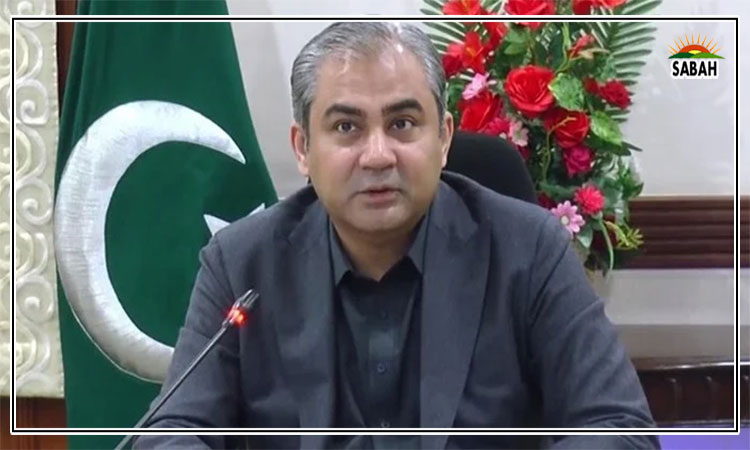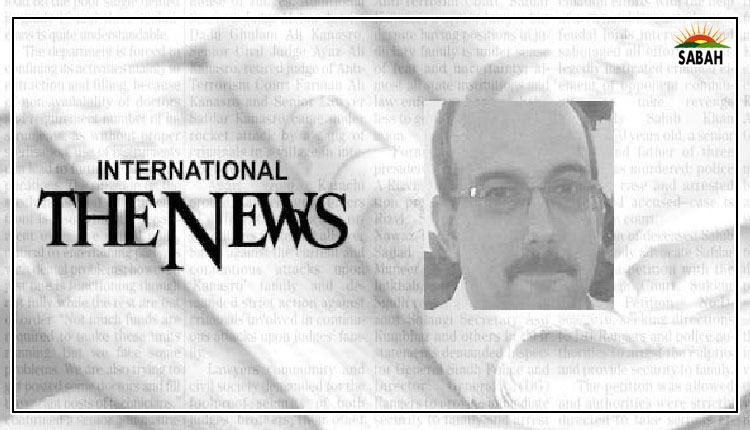The trouble with Tarek…Dr Naazir Mahmood
Tarek Fatah, a Pakistani-Canadian journalist and author, died on April 24 this year. He had for years criticized the partition of India, which many people do, but he went many steps further by calling for the annihilation of Pakistan. He was a leftist student leader and a journalist in Karachi in the 1960s and 1970s and also endured some imprisonment under military regimes, but in that he was not alone: there were many like Nasir Zaidi and Khawar Hashmi who even have the scars of lashes on their backs, but preferred to stay in the country and continue with their struggle rather than calling for the destruction of Pakistan.
Tarek Fatah left Pakistan when he was around 30 years old and for the next over 40 years he developed a single-track mind that influenced millions. From 2018 onwards, he was a regular host of What the Fatah that New Delhi Times hosted on their YouTube channel.
A good intellectual promotes societal tolerance but Tarek Fatah consistently disseminated destructive and xenophobic opinions. It is all right to criticize certain rituals and question practices that are incongruent with modern life, but it is not right to generalize anything about a particular community, nationality, or religion. Tarek Fatah did exactly that.
A good intellectual presents new perspectives to enlighten audiences and readers and does not indulge in harming the very cause that is at stake. TFatah ended up doing exactly the opposite of what he initially set out to do. On multiple occasions, he propounded fake news and circulated communally charged videos against Muslims, many of them fake, doctored, misplaced, or old. He particularly hated all hijab-wearing or burqa-clad women and spewed venom against them. By doing this, he did tremendous harm to the liberal, progressive, and secular cause. In 2020, he tweeted a video of burqa-clad women dancing to a Bollywood number and hinted that the video was from Shaheen Bagh protests in Delhi. The peaceful protest that mostly Muslim women were leading became a target of the right-wing media in India. Fatah had tweeted the same video twice in the past, but did not apologize for promoting sectarianism and jeopardizing the cause of peaceful women protesting. In a way, he contributed to communal disturbances and displayed immense contempt for Muslims.
In his youth, Fatah was an anti-imperialist but gradually he became a majoritarian, supporting the Hindu majority in India and White majority in Canada and incited the majority to take a tough stand against the Muslim minority if they did not fall in line. He appeared to believe that all Muslims were following an Islamist agenda. Of course there are serious issues in Muslim societies including Pakistan but how many are theocracies? Even Saudi Arabia is now changing fast and most governments in Muslim majority countries are openly trying to curb extremism. If I consider myself progressive and secular but then spew venom against any religion, I am harming my own cause.
Even in Pakistan there are intellectuals such as Dr Mubarak Ali and Dr Pervez Hoodbhoy who are progressive and secular by all standards, having a large following and readership. Their goal is not to incite revolt and they are not obsessed with maligning and smearing anyone or any community. Liberal and progressive intellectuals should not sound bitter nor appear aggressive. Such attitudes encourage even more opposition to their ideas, and terms like liberal fascists and liberal extremists get currency.
While Tarek Fatahs books were about promoting enlightenment, his rants and social media posts harmed enlightenment itself. He spoke about challenging Islamic extremism but never did the same to challenge Hindu extremism in India. In fact, he became a populist intellectual who craved for popular approval from the Hindu majority in India and the white majority in Canada.
He failed to realize that the breaking up of any country is mostly a tragic event resulting mostly in bloodshed and prolonged acrimonies; it does not solve the common peoples problems. All communities and nationalities should struggle for more democracy and respect for human rights, challenge the powerful to mend their ways but do all this without advocating for a breakup. Such divisions have resulted in prolonged acrimony and border clashes and prolonged wars.
To summarize, Tarek Fatah started off as an activist, journalist, and student leader. He had tremendous potential to contribute to the battle of ideas in Pakistan. But then he went off the hook, and ended up doing more harm to his own cause.
Courtesy The News












